Fellowships
The USC Charlotta Bass Journalism & Justice Lab hosts professional senior fellows and student fellows. Sign up below, to find out when our next application cycle opens!
-
Our senior fellows are working professionals who have an ongoing research relationship with the Lab. They host talks and events at USC, write articles for our Bearing Witness zine, offer advisory support and enjoy access to many of USC’s research resources.
-
Journalism or public relations fellows write for the Bearing Witness zine, go on site visits, help plan and promote our annual Media Trailblazer Award ceremony, and engage in hands-on Black archival practices workshops.
-
Research fellows pledge to conduct an investigative project of their choice for one year. They receive stipends for research fees, travel support and reporting equipment.
Bass Lab research fellow, Iliya Kure (right), interviews Kate Kirpu in Nigeria during his 2022-2023 fellowship. Kure wrote his thesis on the #AfricansinUkraine movement, which examined the role of smartphones and social media in Nigerians’ efforts to communicate racism they faced at the Ukrainian borders as they fled the country’s impending war. Thanks to their viral campaign, Nigerian students like Kirpu were able to return home safely.
Research
The Charlotta Bass Lab publishes research on the origins of Black witnessing and hashtag activism on the West Coast, and its spread throughout the Black global diaspora. Read our latest report from our inaugural research fellow, Iliya Kure. Then, sign up below to be notified about our future research projects.
#AfricansinUkraine:
An analysis of Black witnessing and hashtag activism at the borders of war
-
When the war between Russia and Ukraine commenced, many Black African students in Ukraine were denied passage to escape the impending violence due to their skin color. This study explores how African students at Ukraine’s borders used smartphones, Twitter, Telegram, and WhatsApp to carry out Black witnessing and hashtag activism, which attracted global attention to their plight, and eventually led to safe passage for the students into neighboring countries.
-
Iliya Kure, a Nigerian Journalist, is a Master’s of Arts student in Specialized Journalism at the University of Southern California, Los Angeles.
He worked as a reporter with Radio Nigeria (National Radio) in Kaduna, and freelanced for Voice of America (VOA); e-Global (a Portuguese news media); and UK-based African Farming Magazine, among others. He has been a media consultant to many development organizations and projects in Nigeria, including UNICEF, UKaid and USAID.
-
Fieldwork for this study was funded by the John D. and Catherine T. MacArthur Foundation, whose gifts to the USC Charlotta Bass Journalism and Justice Lab provided a year-long, $10,000 student research fellowship. The Charlotta Bass Lab offered travel support to Nigeria, recording equipment, and copyediting services.


